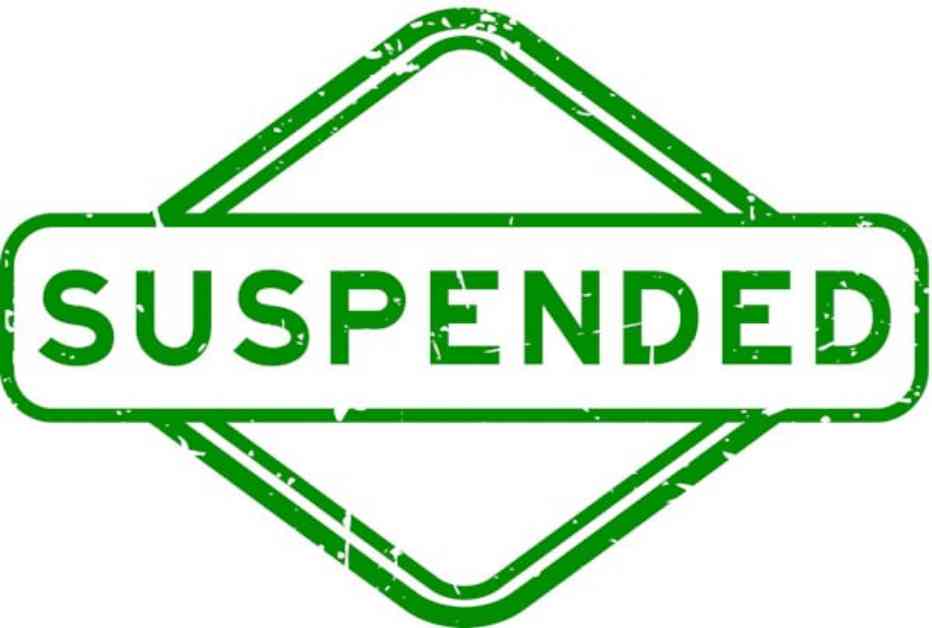**Judge Suspended for Overzealous Collection Tactics: Ohio Supreme Court Takes Action**
The Ohio Supreme Court recently made headlines by suspending Judge Kim Richard Hoover of the Stow Municipal Court in Stow, Ohio. The suspension comes as a result of Judge Hoover’s tactics of ‘overzealous collection’ when it comes to enforcing fines and costs for criminal defendants.
**Suspension and Ruling**
The Ohio Supreme Court has temporarily removed Judge Hoover from office without pay and suspended him from law practice for 18 months, with six months stayed as long as he commits no further misconduct. This decision follows the court’s finding that Judge Hoover had jailed two men for failure to pay fines and costs, and coerced 14 other criminal defendants with threats of incarceration.
**Debtors’ Prison Mentality**
The state supreme court noted that Judge Hoover “leaned into the idea of a debtors’ prison,” which goes against the Ohio Constitution. This document prevents jailing defendants for failure to pay court costs, as they are considered a civil obligation rather than a criminal sanction. Furthermore, an Ohio law specifically prohibits jailing offenders for failure to pay fines unless they have the ability to pay. Defendants are entitled to procedural safeguards, such as the opportunity to present evidence on the issue and the right to an attorney.
**Judge’s Defiance of the Law**
Despite these legal requirements, Judge Hoover admitted that he did not follow Ohio law because he found it impractical. He argued that the statute setting procedural safeguards for jailing people for failure to pay fines did not work effectively for him. This led to his overzealous collection tactics that ultimately led to his suspension from office and law practice.
**Impact on Defendants**
The Ohio Supreme Court detailed several instances where Judge Hoover’s actions had a negative impact on defendants. In one case, a defendant was jailed after failing to show up for a hearing regarding nonpayment. When the defendant explained that jail time would affect his employment, Judge Hoover callously replied, “Yeah. It probably will. That’s the problem with screwing with me.” In another instance, a defendant was brought back to court after spending four days in jail, where Judge Hoover berated him for being a “deadbeat.”
**Ethics and Public Confidence**
The state supreme court concluded that Judge Hoover’s actions demonstrated a bias against those of lower socioeconomic status. By disregarding statutorily required procedures in pursuit of his own goals, Judge Hoover acted in a manner that diminished the public’s confidence in the judiciary and was prejudicial to the administration of justice.
**Public Outcry and Legal Ramifications**
The suspension of Judge Hoover has sparked debate and discussion within the legal community and among the general public. Many have criticized his overzealous collection tactics and the negative impact they had on defendants. The Ohio Supreme Court’s decision to suspend Judge Hoover serves as a reminder of the importance of upholding the law and ensuring fair treatment for all individuals involved in the legal system.
**Rehabilitation Programs and Unblemished Career**
Despite the suspension and criticism, it is worth noting that Judge Hoover had a lengthy and unblemished career of nearly 40 years as a lawyer and judge. He had also created programs to educate and rehabilitate defendants, aiming to teach them responsibility and discipline. However, these efforts were overshadowed by his overzealous collection tactics that ultimately led to his suspension.
**Lessons Learned and Moving Forward**
The case of Judge Hoover serves as a cautionary tale about the importance of following the law and upholding ethical standards in the legal profession. It highlights the need for judges to act impartially and fairly, ensuring that all individuals are treated with respect and dignity within the legal system. As the legal community reflects on this case, it is hoped that lessons will be learned to prevent similar incidents in the future.
**Conclusion**
In conclusion, the suspension of Judge Kim Richard Hoover for overzealous collection tactics serves as a stark reminder of the importance of upholding the law and maintaining ethical standards in the legal profession. The Ohio Supreme Court’s decision to take action against Judge Hoover sends a clear message that such behavior will not be tolerated. As the legal community and the public grapple with the implications of this case, it is hoped that steps will be taken to prevent similar incidents in the future and ensure that justice is served fairly and impartially for all individuals involved in the legal system.















